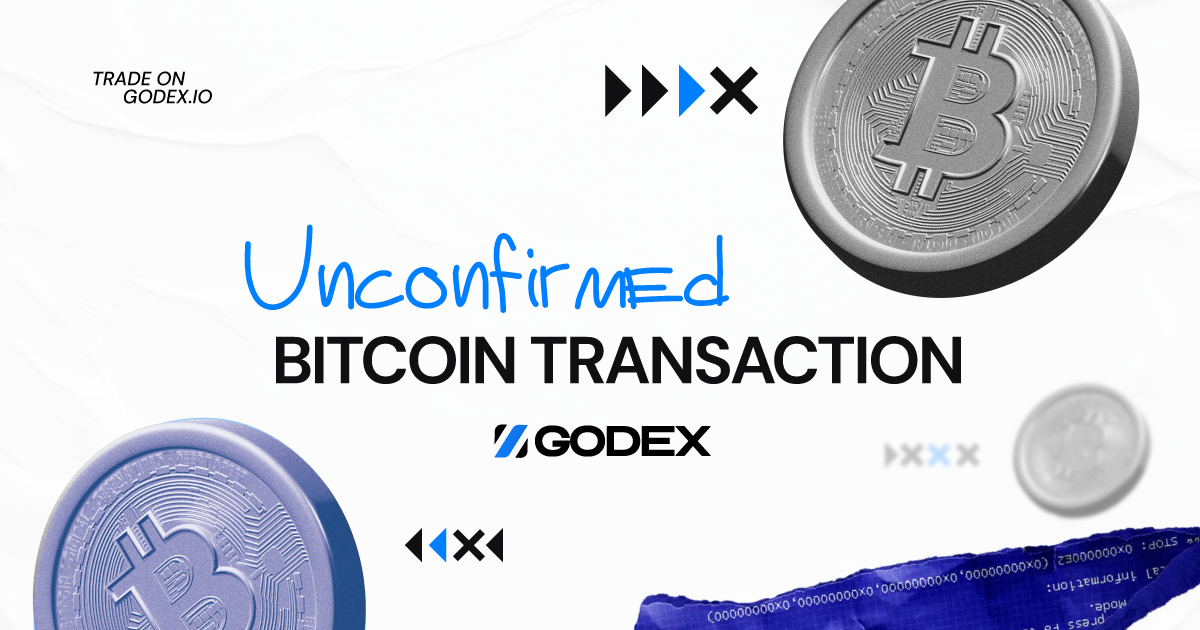Table of Contents
Are you anxious that your Bitcoin unconfirmed transaction stuck? Slow transaction speeds are common due to limited transaction capacity per block. However, if unconfirmed for over 24 hours, it’s essential to investigate potential causes. Let’s get to know what a typical duration looks like, common reasons for stuck transactions, and possible solutions to resolve the issue and release trapped BTC.
What is the typical duration for completing a Bitcoin transaction?
The duration it takes for a BTC transaction to be confirmed, or the status of a Bitcoin transaction, is influenced by various factors, including overall network activity, hash rate, and transaction fees.
On the Bitcoin network, the average confirmation time for a BTC payment is approximately 10 minutes. However, the actual Bitcoin transaction time can fluctuate significantly. If the network becomes congested, there may be a backlog of transactions in the mempool and Bitcoin unconfirmed transaction stuck.
To expedite transactions, users would need to pay higher fees. An example of this occurred in April 2021 when the average Bitcoin transaction fee reached $58, reflecting the increased demand and congestion on the network.
In November 2021, there was a notable 57.97% decrease in Bitcoin’s average transaction cost, dropping from $4.40 to $1.80. Several factors likely contributed to this decline. One possible explanation is the significant expansion of the Bitcoin Lightning Network, which enables off-chain transactions and likely played a role as a catalyst in reducing transaction costs.
The decline in expenses could be attributed to a decrease in interest from Bitcoin miners regarding processing transactions, leading to a reduced level of skepticism. As a consequence, the mining difficulty, which measures the level of difficulty in validating Bitcoin transactions, decreases.
Another probable factor contributing to the reduction in unconfirmed Bitcoin transaction costs is the alleviation of congestion in the mempool, which represents the collection of pending transactions awaiting confirmation. When a transaction is sent to the Bitcoin network, it resides in the mempool until confirmed.
With BTC blocks limited to 1MB in size, a substantial mempool might incentivize miners to prioritize transactions with higher profitability. As the mempool congestion decreases, it can lead to more efficient and cost-effective processing of transactions.
Transaction fee explained
Transaction fees are defined by determining the difference between the amount of Bitcoin (BTC) that is sent and the amount that is received.
In theory, the transaction fee represents the desired speed of confirmation for a user’s transaction on the blockchain. Once a miner certifies a new block, all transactions within it undergo verification. Otherwise, an unconfirmed Bitcoin transaction occurs and lasts until it is confirmed or cancelled by the initiator.
Miners receive transaction fees and block subsidies as payment once a new block is successfully validated. The sum of transaction costs and block subsidies is the block reward. With each Bitcoin halving, the hash rate falls. You can make a single transaction to send bitcoin to a number of different receivers.
Because certifying new blocks requires a significant amount of computing labor and energy, miners are given the incentive to continue validating new blocks whenever the transaction fees increase. Keeping miners active in the market is essential for ensuring continued network security, and transaction fees play a significant role in this process.
Can I cancel an unconfirmed transaction?
Cancelling Bitcoin transaction unconfirmed can be done in either of two main ways. Methods such as the Replace By Fee (RBF) and the Double Spend methods are included in this category. If you want to cancel a Bitcoin transaction that has not yet been confirmed, you can do so in one of the following ways:
- Send the identical transaction again, but this time with an increased cost.
- Start a fresh transaction with the same amount, but this time choose a more expensive fee.
Reasons for unconfirmed Bitcoin transactions
There are a variety of factors that may cause a Bitcoin transaction to remain in the pending state. In the following, you will find a compilation of some of the most frequent causes.
- Blockchain congestion.
Bitcoin’s blockchain limits transactions per block, averaging 1,500-2,000. With 100,000 network transactions, it could take 8.3 hours to confirm all transactions. Check Blockchain.com and Blockstream for network congestion. Stalled transactions may occur if confirmation time is high, requiring investigation into potential factors.
- Low transaction fees
Bitcoin transactions require fees as a reward for miners. High transaction volume leads to increased fees and potential delays. Restarting or paying higher fees can incentivize miners to process transactions.
- Erroneous wallet address
Incorrect recipient addresses can also provoke an unconfirmed transaction of Bitcoin. Wallet addresses consist of long alphanumeric strings, making mistyping possible. Even a single incorrect character can prevent confirmation. Verify the recipient address within the Bitcoin wallet to resolve stuck transactions..
- The transaction size is too large for the available block space
Huge transactions exceeding Bitcoin’s block limit can be blocked. Transaction size is influenced by inputs and outputs. If unconfirmed for 24 hours, evaluate complex transactions involving multiple parties. It may need to be reprocessed due to size constraints on the blockchain.
- Internet doesn’t work properly
Internet connectivity is vital for Bitcoin blockchain operations as miners rely on it for receiving transactions. If a transaction fails to reach all miners due to an interrupted connection, it won’t be processed. Before sending a transaction, it is recommended to check the Internet connection using sites like Fast.com or speedtest.net and ensure that anti-virus software settings or firewalls are not blocking data transmission.
- Issues with a wallet
A halted transaction could be due to the recipient’s error. Unsynchronized wallet addresses can add to a Bitcoin transaction unconfirmed for days. To prevent issues, verify the wallet address with the recipient, activate the wallet, and cancel any pending network-sent transactions.
- Extra spending
Double spending, spending BTC for two transactions, was a significant challenge for Bitcoin. Miners validate transactions to prevent it. However, wallet-level double spending is possible if not all providers deduct committed BTC digitally. Miners detect double-spent BTC but won’t restore it to the user’s wallet. To cancel a transaction, a higher-fee double spend is recommended.
- Outdated protocols
The Bitcoin blockchain has undergone several updates, enhancing functionality and scalability. However, transactions can’t be completed across different protocol versions, leading to network congestion. SegWit increased transaction speeds and scalability, necessitating wallet providers to support it. To resolve a Bitcoin unconfirmed transaction, ensure the sender and recipient wallets use the same protocol version. Cancel transactions involving older protocol versions.
Troubleshooting Unconfirmed Bitcoin Transactions
Is the rapidity with which your transaction is confirmed really so crucial to you? Depending on how far into the future you want to look, you can either:
- Wait until things work out on their own
If you’re wondering why is my Bitcoin transaction is unconfirmed and can wait, you may wish to wait for your transaction to confirm. Most transactions are confirmed within 72 hours.
Your transaction won’t be stuck if it doesn’t confirm within 72 hours. After two weeks, your transaction may be dropped from the mempool, thereby “refunding” you and allowing you to send a new transaction with your original balance (assuming your transaction hasn’t been validated, your funds have never left your wallet).
- If you’re in a hurry, you can rebroadcast your transaction with a higher fee to expedite the process.
If you need to rebroadcast your transaction quickly, you can boost the charge. This Replace By Fee (RBF) method only works with a few wallets, so check with your wallet vendor. This compatibility matrix is also handy. Send another RBF transaction if your wallet supports it and you opted in.
To optimize transaction fees and enhance efficiency, consider the following solutions:
- Avoid transactions during bull markets to mitigate elevated fees.
- Refrain from sending transactions during the daily influx of transactions from BitMEX at 9 a.m. EST.
- Adjust time preferences and practice patience for achieving low fee rates.
- Utilize batching to send bitcoin to multiple receivers in a single transaction.
- Consolidate bitcoins (UTXOs) to reduce future transaction sizes.
- Explore the Lightning Network for faster and cost-effective transactions, requiring knowledge of HTLCs, state channels, and channel management.
- Take advantage of lower fee rates on weekends due to reduced on-chain activity.
FAQ
What is an unconfirmed Bitcoin transaction?
On the Bitcoin blockchain, there are numerous causes that provoke some transactions to get stuck in the pending state for an extended period of time, the primary one being network congestion. If your Bitcoin transaction has been unconfirmed for 24 hours, you can wait or use the Replace By Fee (RBF) method.
Are there any risks associated with unconfirmed Bitcoin transactions?
Unconfirmed Bitcoin transactions are widespread and usually harmless. The Bitcoin blockchain requires it. However, if a transaction remains unconfirmed for a long time, it is crucial to understand the causes to lessen stress and find a solution.
What happens if a transaction is never confirmed?
In the event that the transaction is never verified, you can always learn how to cancel an unconfirmed Bitcoin transaction and start over with a fresh one. In the event that the transaction cannot be confirmed, no money will be taken from your account.
Start a Cryptocurrency exchange
Try our crypto exchange platform
Disclaimer: Please keep in mind that the content of this article is not financial or investing advice. The information provided is the author’s opinion only and should not be considered as direct recommendations for trading or investment. Any article reader or website visitor should consider multiple viewpoints and become familiar with all local regulations before cryptocurrency investment. We do not make any warranties about reliability and accuracy of this information.
 Alex Tamm
Alex Tamm 
Read more
Ripple (XRP) price has been widely discussed by the cryptocurrency community since it has gained public interest in 2017, even though it was founded by Chris Larsen and Jed McCaleb years before. The platform offers innovative blockchain solutions for the banking sector and has the potential to disrupt the whole finance industry. In recent years, […]
In this article we will talk about Ripple (XRP) and its price prediction. What is Ripple (XRP) Ripple is a San Francisco-based startup that was launched in 2012 by Ripple Labs as a global network both for cross-currency and gross payments. Ripple history began in 2004 with the discussions around the digital coin in the […]
You may well think that an article dedicated to a Tether price prediction or the Tether price in general is a little bit strange — it is a stablecoin after all. However, the price of Tether does fluctuate significantly, although it is nowhere near as volatile as non-stablecoin cryptos. This means that staying up to […]
In the article we share our vision at Zcash cryptocurrency main features and add several price predictions. As cryptocurrencies gain global acceptance and decentralisation slowly enters our lives, privacy becomes the main concern when talking about blockchain adoption. It is no secret that distributed ledger is by far the most secure and transparent technology ever […]
Chiliz coin (CHZ) offers a compelling opportunity for traders interested in the intersection of blockchain technology and sports. By enabling fans to influence team decisions through the Socios app, Chiliz directly monetizes fan engagement and connects with major sports teams like Juventus and Paris Saint-Germain. These partnerships not only enhance the platform’s visibility but also […]
The exponential growth of Bitcoin Satoshi Vision (BSV) against the general bear trend on the cryptocurrency market in autumn 2019 has impressed the community. Due to the increasing market capitalization, the newly emerged altcoin was ranked 5th on CoinMarketCap and managed to maintain its high position at the beginning of 2020. In the article we […]